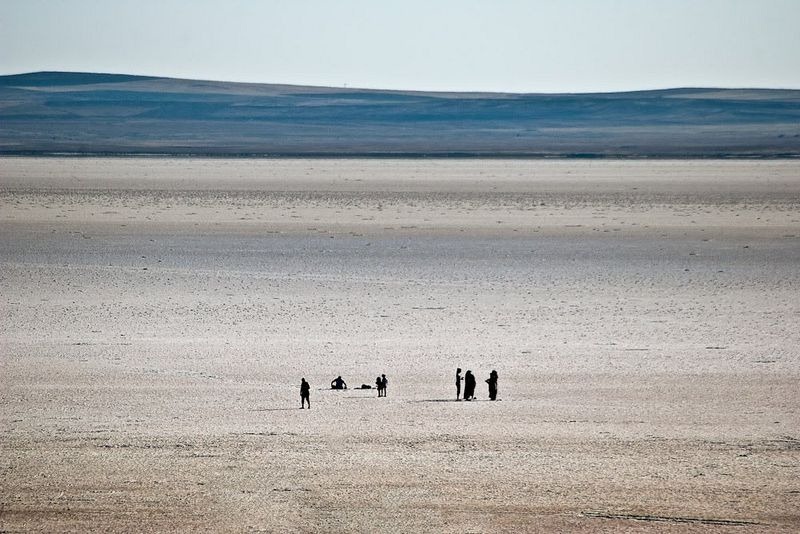Lake Tuz, or Tuz Golu in Turkish, is a saline lake located in a huge area in the arid central plateau of Turkey, about 105 km northeast of Konya. It is the second largest lake in Turkey. The lake is fed by two major streams, groundwater, and surface water, but has no outlet, because of which it has high saline content. For most of the year, the lake is very shallow, barely a meter deep, especially during the dry summer months when the water evaporates in huge quantities leaving a tick crust of salt on the surface up to 30 centimeters thick. This salt is harvested, refined and sold all over Turkey. In fact, the 63% of the salt consumed in Turkey comes from Lake Tuz.
Like most saline lakes, Lake Tuz is a breeding ground of halophiles such as the microalgae Dunaliella salina, that in right conditions of high salinity and light intensity, turns red due to the production of protective carotenoids in the cells. These pigment color the lake blood red. The lake also attracts large colonies of birds such as greater flamingo, greater white-fronted goose and lesser kestrel.








 Source
Source









